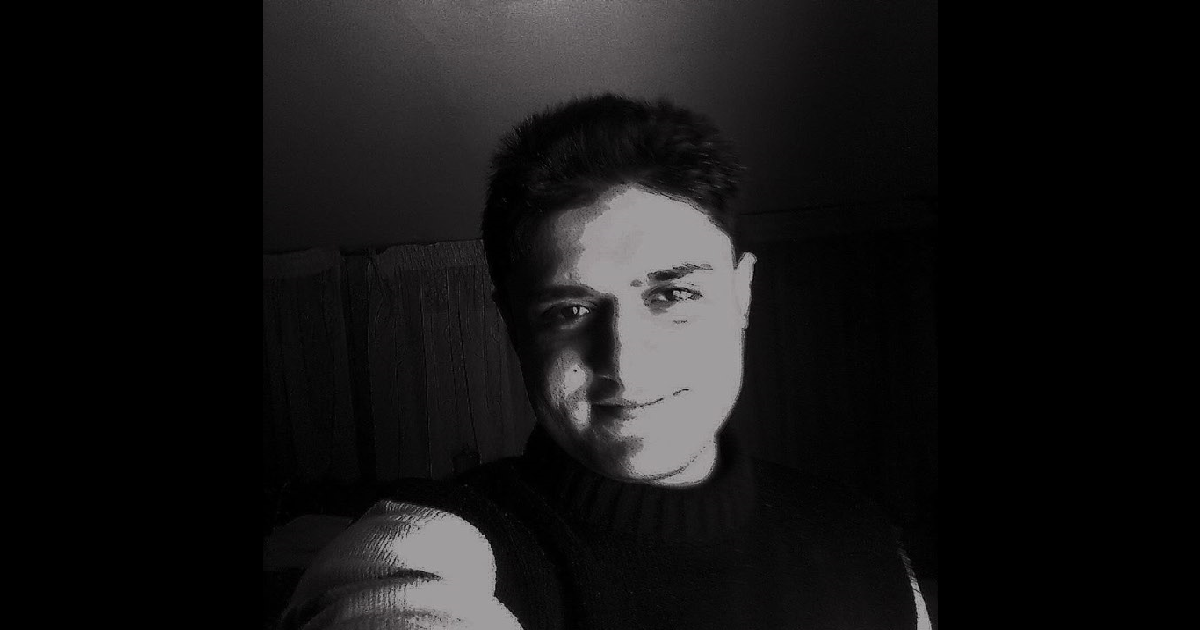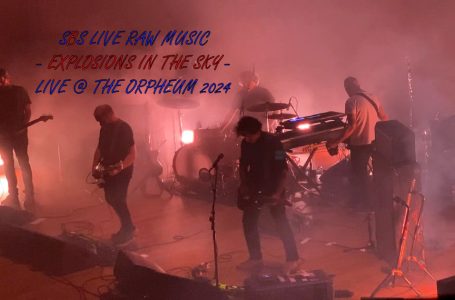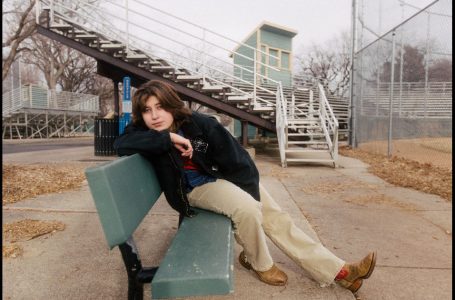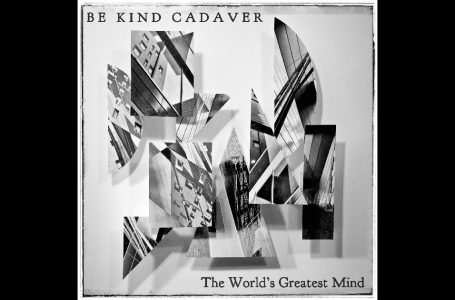Roman Kharkovsky

Roman Kharkovsky Interview
SBS: The infamous Roman Kharkovsky! Thanks so much for taking some time to talk to us here at SBS and to all the people out there reading. Let’s get everyone on the same page to start, so those that haven’t heard you yet get an idea of what you’re all about. How would you describe your music and what do you feel sets it apart from the rest of what’s happening out there in the music-scene?
Roman: Roman Kharkovsky is a spiritual entity that belongs to city of Kharkov; part of my soul that brings me the sounds or music through visions.
It would be very hard to describe my music in words because those sounds or melodies are the reflections of my spiritual visions, which makes the music very personal. I don’t really compare my music with others. An artist usually tries to paint the idea or concept or vision in the form of an image. Such image could be presented sonically or in any other way possible. The only thing I think that can set Roman Kharkovsky apart somehow is that the music is totally based on visions that relate to Kharkov or the surrounding near Kharkiv. i.e. other cities of Ukraine.
SBS: We’ve of course, recently been checking out a couple of your records, Tales Of Kharkov Through The Eyes Of My Nightingale (2013) and Rituals (2010) – I suppose the obvious question is, why now? There’s no right or wrong answer when it comes to how or when to promote music really…but the majority out there assume that after an album’s out for like a year, that it’s done what it’s going to do and achieved the results it’s going to achieve. I’m in promotions of course…and I know there’s no credibility in that assessment – I’d assume you feel the same, given that we’re checking out records that are five years old or more. So tell us what’s got you pushing these records out there to be heard again now, and try to explain a bit about why there’s never a bad time to put your art/music out into the world, even if it’s become older over time.
Roman: When music comes from the soul, it can never get old. It’s just part of you. Methods of delivering the visions through music could change with the time, but the music that’s once has come out of your spiritual world; it is just part of you. I guess, I was too busy in just discovering the new methods of getting the visions in the form of the sounds that I did not think of so much about promoting them by then. Promotion was not so important back then, just making music or crafting sounds was. So I guess, I am trying to do what I should have done long ago as if I feel that they did not have enough exposure.
SBS: Behind the scenes you’d mentioned that the Rituals album was written originally as a completely untitled project, but later felt like the songs belonged in the Roman Kharkovsky catalog – what was it about this set of songs that made you feel that way?
Roman: “Rituals” was written under a very intense mystical phase. I surely had realized my spiritual connection with Kharkov back then, but it was more like as if I had seen the places, but did not know the names. As the time passed, I realized later on that those visions were part of Roman Kharkovsky’s world too.
SBS: For those out there that don’t know – you also make music as Blackmyth, which we’ve reviewed on our site in the past as well. What keeps the music separate between the two projects? Why do you feel the need to compartmentalize the songs under different names as opposed to just one? How does this separation become an asset to the music you make? Are there other names you record under as well?
Roman: Roman Kharkovsky’s music has some strict geographical limits. It starts from Kharkov and continues to Dnieper river, then all the way to Carpathian mountains and stops just at the Black sea. Blackmyth is a totally different story. Blackmyth knows no boundaries. With Blackmyth, I have much more freedom to make sounds/music as I wish. I could go as far as to experiment, or even make a dance track. With Roman Kharkovsky, I don’t have such control as I said before, it is more about visions and feelings and it requires meticulous details how to deliver such visions in the form of sounds.
At the moment, there is no other name that I make music with.
SBS: By my estimation…you’ve been making music for the better part of a decade at the very least…so at this point, you’ve been out there for a while, you’ve seen/heard people’s first impression when they hear your music many times over I’m sure. But I can’t imagine that this ever gets old – that’s gotta be awesome, isn’t it? I’d have to assume that half the time most people out there wouldn’t know what to make of the music you create…so there’s gotta be a whole range of reactions to what you come up with. When it comes to what people hear in your music or how they perceive it – what’s the general consensus? Do these comments & opinions, critiques & observations from people play any kind of role in your creative process, or are the things that people say completely separate from the art & craft? Obviously we all want everyone to like the music we make – but realistically we all know that not everyone will – so how do you know when an observation or opinion is valid & potentially helpful?
Roman: I grew up in a totally different kind of society and such form of music was never appreciated or at least understood. I have never really expected to get wowed by the music I make. In my opinion, people have different backgrounds and influences when it comes to music. Some grow up on rock music and they feel and understand music in a different way than a person who would have grown up on folk music or trance music or classical music. So to expect from someone to like my music, I see it 50/50 chance. It could hit or miss, but that was never the reason why I wanted to make music. I have my own influences and I can only expect the people to find interest in it who share similar influences or history. As for comments or opinions, yes I get a lot😊 When it comes to ambient music, I have usually seen more appreciation than any negative opinions. The most usual comment would be “Man, you should really consider writing soundtracks or scores for movies”
SBS: No matter which record of yours that I’ve listened to, no matter which name you’ve recorded it under – they all possess a fresh, unrestricted creative freedom in the ideas, sounds, and songs you create. That seems to be important to you as an artist…the idea that you can take your music in any direction you like. I think people put way too much on the shoulders of a band or artist to stay the same and pretty much force them to try to duplicate what we’ve loved from them in the past in the future over & over again…so I’d have to imagine that I’m on your side on this one…that there are serious benefits to be found in being versatile & open on a creative-level. I think what holds many artists/bands back in their career is that fear of change…like they think that if they make something too different, all of a sudden their entire fan-base will disappear overnight or something strange like that. But you don’t seem to have any fear at all when it comes to creating something that’s different from the last music you made – is creative freedom something you use consciously or something that happens organically? Or both? Do you feel that artists/bands restrict themselves too much in some ways? How do you reconcile the ‘responsibility’ to the fan-base while satisfying your own creative desires as a musician?
Roman: Thank you!!! It is really hard to answer this question. I think yes, artists/bands who have big following, do restrict themselves to certain extent. Perhaps, this is the reason why many artists, even from well-known bands, get to form a separate project where they feel free what to express through music, and not just for the sake of pleasing the fan base.
As far as it is concerned with me, I think we should explore the sound as much as possible to the most end level without any good or bad expectations from the listener. There must be no limit of sound of method to express the art. At least, this is the case that’s with me. It would be really boring to make similar tracks. It surely does not have much place within the world of Roman Kharkovsky or Blackmyth either.
SBS: So…let’s sort some details out here… In the world according to the internet and particularly the page at Bandcamp, Roman Kharkovsky is based in Saudi Arabia. According to my notes here, originally from Pakistan. There’s mention of records being pressed in Germany. And then of course, we’ve got the nuts & bolts of it all – the songs themselves, or the heart of the project, being based around one seriously intense interest in Kharkov, Ukraine…which according to legend…you’ve never even been to. So tell us my friend…how on earth does a place like this end up occupying so much of your headspace? You mention a spiritual connection to Kharkov…how did you come to realize/recognize this to be true? And I suppose, while we’re somewhat on the subject – where exactly are you based out of now?
Roman: When I had created this bandcamp page, I was based in Saudi Arabia, so it turned out to be that way. I have lived in different countries most of my life; particularly, in Saudi Arabia and Lebanon.
Music journey all started in Lebanon though. As for the records being pressed in Germany, it was just on a label called “Drone Records” in Germany; that’s why it was mentioned.
Now about Kharkov. Okay, it is really difficult to describe how it all started. But it was surely through visions and music that I had been seeing and hearing within myself. Vision was there, but was not sure about the place. And then music was there, but not sure where it was taking me to. Lots of different feelings and confusions within my own personal world, and it took little while to understand all of this and as soon as the things started to clear, I started to find myself more within the boundaries of Kharkov. Music and Kharkov just started to get together so well that I felt for some time that I was perhaps physically present in Lebanon, but my soul was all the time in Kharkov. Spiritual experiences are really hard to get expressed through words, but I tried 🙂
As of now, currently, I am based in Pakistan.
SBS: Assuming that the information I’m reading is current and things haven’t changed…and you still haven’t been to Kharkov yet – I suppose it’s only fair to ask if you’ve got any plans to go there? I’m curious about how you might feel about that…it would be bizarre to maybe have an impression or even form an impression of what a place might be like, only to get there and find out it’s completely different altogether. And in a way, what you’re creating through your music adds like, a straight-up mythology to Kharkov that adds a whole level of mystery to the place…so maybe it would be better to not visit? I can see positives & negatives in both aspects of that scenario…still it’s hard to imagine you wouldn’t want to go to a place that has clearly had you so interested…hmmm! What do you think Roman? Travel time? In theory, these are your people brother! They might just roll out the red carpet when you get there.
Roman: When “Tales of Kharkov through of eyes of my nightingale” was recorded, it’s true that I had not been to Kharkov by then. But things have changed, and I finally had the chance to visit this wonderful city back in 2014 and I have visited frequently few more times. The experience was intense and much more beautiful than I had expected. Even, I had the chance the play one time live there, which was almost like becoming one of oldest visions true where I had played music for the souls of Kharkov long ago.
SBS: Do you spend a lot of time listening to your own music? Why/why-not?
Roman: Nowadays, not so much 😊 but it’s surely beautiful listening to your music as they reflect the part of your soul and give you much more like spiritual pleasure than just listening to music normally.
SBS: I think that as listeners, and certainly people that review music regularly like myself, we can tend to get lost inside our own thought-process & attachments to the songs we listen to. When I reviewed Tales Of Kharkov Through The Eyes Of My Nightingale earlier this month, I pointed out a lot of what I loved about a song called “Sleeping With The Winds That Lie Above The Clouds Of Kharkov.” I gave you a lot of credit for making subtle switches in the tone & transitions of this song that to me, were entirely noticeable. I know for a lot of people, it’d be hard to hear those switches. Anyhow. What I really want to know is…was I right? These subtle changes – this is all intentional and not accidental when it comes to what makes a finished track that makes it on to your albums, right? I think a lot of people have the perception that an ambient track would be an easy thing to create – but when I heard this track, to me, it actually seemed incredibly involved & would have been tough to put together. So…settle the debate for us all…are these experimental/ambient cuts happy accidents or are they painstakingly put together? Did I read too much into the making of “Sleeping With The Winds That Lie Above The Clouds Of Kharkov” or was it all really that intricate & complex to put together? How hard are you working on these songs Roman?
Roman: There are no accidental cuts in Roman Kharkovsky’s music. All the tracks were created as perceived in visions and surely it can take lot of effort to create a track that must reflect your personal vision. As for “Sleeping with the Winds that lie above the clouds of Kharkov”, yes you are right and you nailed it 😊 if I recall well, it was no easy track for me due to the atmosphere that I was looking to put down in the form of sounds.
It took me 3 years to complete “Tales of Kharkov through the eyes of my nightingale”. Lots of attempts to create what I wanted but failed many times.
An ambient track can be easy for one who just wants to put lots of effects on a track and maybe the track would turn out to be too good. It can be fun sometimes, but that was not the case with “Tales of Kharkov through the eyes of my Nightingale”. I try to take things in a very serious way when it’s Roman Kharkovsky’s music. Things might not be perfect but surely not accidental.
I had many accidental ambient tracks when I was new to composing soundtracks, or sometimes I get them ready now too. But it is just part of learning curve, which never finishes, but to consider accidental tracks getting included in a concept based album would not really work, I guess.
SBS: Has there ever been a time where you had to compromise something about your music in order to get to the results you were looking for? Obstacles can come up in many forms as we all know – but sometimes it goes beyond that, where we have to sacrifice A in order to achieve B – know what I mean? We tend to give a lot as artists…but in the process, lots can be taken away. What’s it been like for you?
Roman: Actually yes. Social life and others things in life such as work and other things have kept me kind of far away from composing music in the last few years.
SBS: Do you ever feel pressure to make music? Either from yourself or from others? What inspires you to get out of bed one day and make a song…what’s the main motivation that drives you to create?
Roman: It is really different at different times. Sometimes, I am listening to a song on the radio and it refreshes the inner desires to create new music. At other times, it could be anger, or sorrow or mixture of strange feelings. I feel the music that comes from me is more on the melancholic side than on the happy side. Perhaps, I never liked happy music and even if I tried to make it, it was always a disaster 😊
SBS: You’ve also released Drone Mind Mind Drone Vol. 4 (2015) and some singles past the two records I’ve already mentioned – what’s coming up next for the music of Roman Kharkovsky?
Roman: There are many tracks under progress, but lots of things have changed in the past 3 to 4 years. Life has become much busier and I get very little time to write down music. When in Lebanon, I was living a lonely life, and it gave me much space to devote full time to music. Now the things are slow, but I keep getting back to it. There should be new surprises soon that I have been working gradually.
SBS: Given that you’re on your own for the music you make – how do you know when a song is ‘complete.’ It can be tough to self-edit…it can be tough to stop sometimes when we want to keep going – one of the hardest things to do as a solo-artist is to reign in our creativity in a way that makes the art accessible and not self-indulgent, too personal, or pretentious. And then you add in the experimental factor and everything becomes that much harder to really know when the writing should end – so how do you do it Roman? How do you know when it’s time to move on to the next song and that the one you were just working on is exactly how you wanted it to be? What is it that you can hear in your music that tells you the song you’ve created is ready to go or ready to be a part of an album – what does it have to have in order to be a part of the Roman Kharkovsky collection?
Roman: When I feel that the music is almost reflecting like 75 to 80 percent of my vision, I take that the track is almost complete before any last mixing efforts. Sometimes, mixing can take time as the sounds that I want to stand out in the mix don’t sound that way. So I guess the answer is that soundtrack must reflect my vision for me to consider it complete, or it will be just in continuous effort phase.
With Blackmyth, it’s totally different. It’s more about just kicking the drum and start and sometimes I know that there will be an end and sometimes, it’s just an incomplete track just left for the future. I guess there is no definite to answer to when I could know the track is complete. It’s very much on the feeling that I get during the process of completing a track. There is always room for improvement, but I guess 80% satisfaction is good enough in my case.
SBS: Do you feel like an artist’s current material should always be their best material? Why/why-not?
Roman: No I don’t think so. Technically, it might be as we get to learn lots of new techniques and methods to create new sounds, and of course the mixing tools and the process. So Perhaps, it might be easier to express as we get control over creating sounds that we want to bring the in music. But atmosphere wise, I think old music could be as good as the new music.
SBS: It can definitely be tougher to get people’s attention with ambient/drone/experimental music – we know that from time & experience…it’s much more subtle and a heck of a lot less flashy than Top-40, let’s face it. So there are definitely challenges when it comes to finding an audience…but it’s also definitely not impossible. There are a ton of directions that an artist like you could take your music into beyond the studio…like soundtrack work for films & tv & all that. Have you ever attempted to make anything like that or collaborate in that kind of way? Or maybe there’s a whole other name you’re already going by and you’ve been making soundtracks to movies for years now? You never know with you Roman – that’s why I gotta ask! What options are you considering in how you put your music out there into the world?
Roman: When speaking of Roman Kharkovsky, Just like I had mentioned before that I was never making music to get attention of the masses. It was always just personally about my visions. I always had the option to go for soundtracks for movies or games, even I was recommended by my friends to go this way. I am not sure if I could give such time for now. Maybe if I had tried like couple of years ago, I would have surely the opportunity. But Back then, I was much more focused on my expressing my visions rather than just creating atmospheric music for others.
No I am not creating any soundtracks under any other alias. If there would be, it would be only under Blackmyth.
SBS: As an artist – how do you plan to challenge yourself over the years to come? Is there anything that you still want to learn, or something you want to try, a new skill to develop, equipment to explore…I get the sense that you’re never satisfied and always looking to get more out of your music & your own abilities…so how do you plan to continue to evolve as an artist? Or does that just occur naturally?
Roman: Yes, for sure, I am never satisfied. You got it totally right. I feel that I never had the time to devote to making music process in the last 4 to 5 years. There are lots of wishes still to be fulfilled. Lots of immense quest for new sounds, new methods, new melodies. and new atmospheres and new computer. As I also find many obstacles to complete the tracks due to technical issues. If I had faster computer, perhaps, I would have had much better control over my creations and lots of new music ready.
As for evolution as an artist, I think it occurs naturally. Just there should be desire to do something new. 😊
SBS: It can also be difficult as an instrumental artist of any kind, to ultimately communicate the message or meanings behind their music without the advantage of words. Not in all cases mind you, but some. For those out there that are hearing your music but maybe aren’t quite listening to it for all it has to offer – what do you think that people should notice about the songs of Roman Kharkovsky that they might miss if they’re not paying close enough attention? Ultimately, is there something you’re trying to say or that you’re trying to express to the world through your music that you want people to hear?
Roman: It is really hard. But I don’t go into such details. People can have different feelings toward one track. I think the best for instrumental music is to let the listener understand and feel the music they want. In my case, maybe they can imagine Kharkov 😊 OR at least they should focus on the atmosphere and let it grow. If they are not paying close attention, I think they will lose it all.
In my opinion, Ambient/Instrumental music depends very much upon subtle changes and sensitive details. It is hard to fully appreciate such music with too little focus, and actually I would say the same with any other form of music because there are always details and when noticed, the experience of enjoying a song or a track totally changes into another level of pleasure.
But again, it is really hard to give any specific answer. The tracks on the album “Rituals” were left untitled due to this reason too. I decided to let the listener feel and understand the music the way they want to perceive and feel.
By the way, when it comes to me, I have never really cared about the lyrics of any song in my life. If I like the atmosphere, I just love it. For me, it’s been always more about atmosphere. But I know other people have different priorities when it comes to music.
SBS: If you could choose to have your music listened to by one specific person out there that hasn’t heard it yet – who would you choose and why would you want them to hear it?
Roman: Perhaps late Ukrainian classical musician “Mykola Lyskenko”. I chose him because his music has surely influenced me a lot instrumentally. Atmosphere wise. Songs like Natalka Poltavka and Taras Bulba. The tracks on “Drone mind mind drone vol 4” are dedicated to him. I had the honor to visit his birth of city too i.e. Kremenchuk.
SBS: What would you say is the best record you’ve heard in the past five years and why?
Roman: I am not sure how to answer this question. I did not have the chance to listen to a particular record in the past 5 years due to other life activities. But I surely have enjoyed lots of music by Ukrainian band “Okean Elzy.”
SBS: You’ve made it! Congratulations brother – that’s a whole lot of questions! I like to think we covered it all, but I know the reality…there’s always more to be said. So here’s your chance to do that – you’ve got our traditional ‘open floor’ at the end here to say anything else you like. On behalf of us here at SBS, and on behalf of all us listening to your music out there – THANK-YOU so much for taking the time to do this interview and fill us in on all the details! Stoked to have you up on our pages Roman – and I’m looking forward to whatever crazy concoction of music you come up with next. The floor is yours my friend – leave us with some inspiring final words of wisdom or whatever ya like! Cheers!
Roman: Little about me: I grew up on Extreme metal music, always admired it due to atmosphere. My main passion for music started only with Extreme metal music. “Inno A Satana” by band Emperor was like a big turning point in my life. It totally changed my perception about music.
I might have moved to different styles of music now, but I cannot deny the importance of Extreme metal music and its impact on my musical life.
Audio quality has never been the issue for me. It can be really bad recorded record, but if it has the atmosphere that I crave for, I would take it on any good quality sound record.
Ukrainian and Russian music in all genres, from classical to folk to pop to metal music, has played a lot of role and influence in my music, or in forming my musical direction, from melodies to atmosphere and this I could never deny.
In my heart, I am the spiritually strongly connected to Ukraine, and particularly to its cities Kharkiv and Kremenchuk and Dnieper river.
God bless Ukraine and its people and its cities.
I addition, I really want to thank my friend Swill Klitch from “Cold Graey Records”, Stefan from “Drone records” for supporting my art all this time.
Thank you very much for your time and interview.
Keep spreading the good music and supporting new artists.
Honor to meet you my friend 😊
Make sure to catch more music from Roman Kharkovsky on the next episode of the SBS Podcast! Find out more about Roman Kharkovsky at his official page at Facebook: https://www.facebook.com/roma.kharkovsky/
We’ve got questions, you’ve got answers – be our next interview guest at sleepingbagstudios by clicking here!






